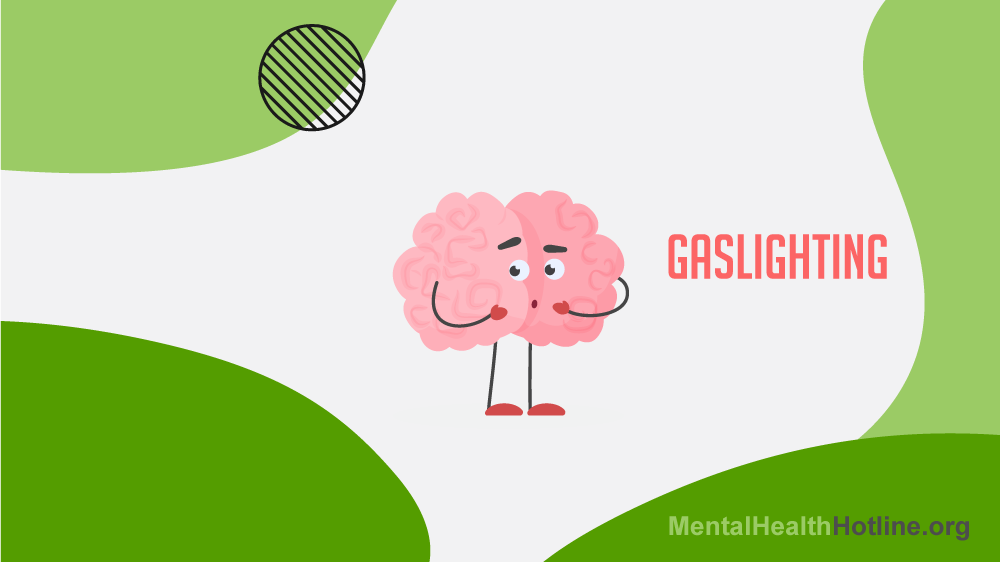Most people have heard the term gaslighting before, since the word has grown in popularity in modern culture. The term originated from a 1944 film, Gaslight, in which a man manipulates his wife into thinking she has a mental illness. The film accurately portrays what the word has come to mean. But what is gaslighting, and how can you identify it? We answer these questions and provide additional resources below.
What Does the Term ‘Gaslighting’ Mean?
In psychology, gaslighting is a form of psychological abuse in which one person (or group of people) makes another person question their sanity. They may do this by making the person believe they’re insane or by causing them to question their memories and perception of reality. Gaslighting is always done on purpose and can significantly negatively affect a person’s mental health. It can cause the victim to feel anxious, confused, depressed and like they can’t trust themselves.
Examples of phrases you might hear from someone who’s attempting to gaslight you or another person include:
- “Are you sure about that? You have a bad memory.”
- “Now you’re just confusing me. I don’t understand what you’re trying to say.”
- “I don’t know what you’re talking about.”
- “You’re too sensitive. Why do you have to overreact so much?”
- “It’s not a big deal. I don’t understand why you’re making it out to be that way.”
- “I never said that. I don’t know what you’re talking about.”
- “I never did that. Why do you have to make things up?”
- “This is just nonsense you read on the internet. You don’t know what you’re talking about.”
- “Nobody would believe you anyway. Everyone knows women are just hysterical.”
- “Why would anyone believe you? Look at how you’re acting.”
Gaslighting in Recent Popular Culture
Gaslighting has recently become such a popular term that it won 2022’s “Word of the Year.” While many are becoming more aware of gaslighting and the potential harm it causes, some are misusing the word. Too often, people today are using the term to refer to someone who’s a liar. But the two aren’t interchangeable. A liar is someone who intentionally says something untrue to cover up an event or issue, whereas gaslighting makes another person doubt their sanity.
What Link Does Gaslighting Have to Mental Health?
Gaslighting is often used by people who have narcissistic personality disorder. Other signs that someone has this condition include:
- Fantasies of having unlimited power/Craving power in all relationships
- A sense of entitlement
- Acting arrogant, patronizing or generally demeaning to others
- A strong belief that they’re special
- Chronic lying
- Generally being very charming (especially in public)
The person who’s being gaslit can suffer a range of mental health problems as a result, including:
- Anxiety
- Depression
- Feelings of insecurity
- Intense fear of “doing wrong” or “doing the wrong thing”
- Doubting themselves and their perception of events or reality
- Suicidal ideation (in severe cases)
Gaslighting in Toxic Relationships
Gaslighting is often used in toxic relationships as a way for one person to remain in power over another. This isn’t a healthy relationship dynamic, and gaslighting often coincides with or comes before other forms of domestic violence. For example, gaslighting may be the first sign you’re in a toxic relationship, and if you continue to stay in it, the toxic partner may ultimately begin to abuse you physically, sexually or financially.
What to Do If You Find Yourself a Victim of Gaslighting
If you’re the victim of gaslighting, the most important thing to do is get away. Reach out to your close friends or family and develop an escape plan. Don’t hesitate to call for professional assistance if the situation becomes violent.
Once you’re free of the abuser, it’s important to get help. The effects of gaslighting can last for months or years after the abuse has ended, causing you to continue doubting yourself and battle ongoing mental health problems.
Gaslighting can have a significant impact on your mental health. The longer and more severe the gaslighting is, the more damaging it can be to your mental health. Reaching out for help is the first step in your wellness journey after a toxic relationship.

